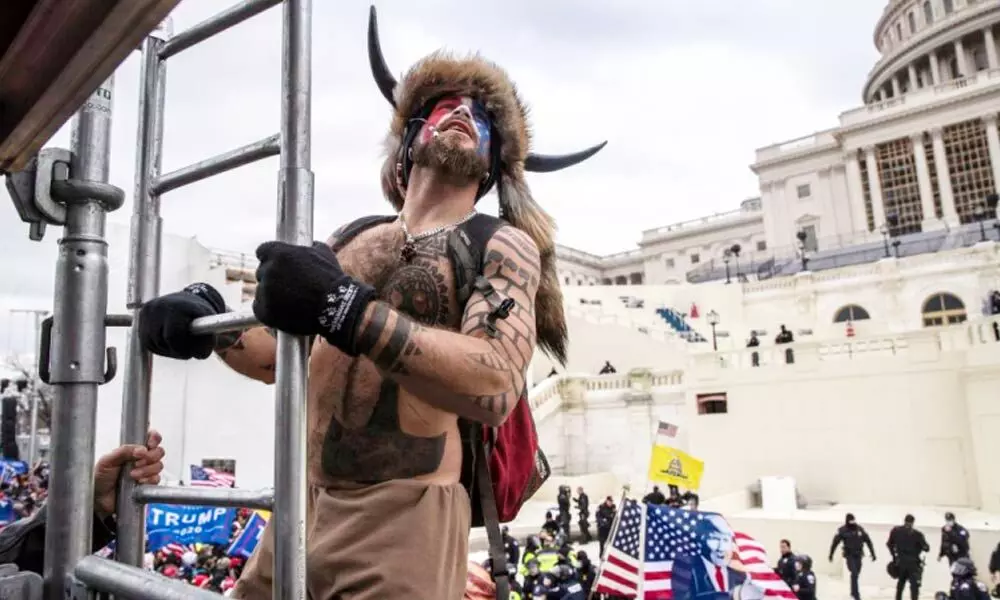Insurrections can be contagious
The question is not what most people will think. It’s what the people at the extremes will think and do
image for illustrative purpose

Revolts and rebellions can be highly contagious social events. The American Revolution set off upheavals around the world. The Bolshevik revolution sparked related attempts in many other countries. The Arab Spring was a series of correlated events. A few Black Lives Matter demonstrations in the U.S. led to many more, in many other countries.
There is a real possibility that the events of January 6 in Washington will also be contagious, in the US and abroad.
Put aside US politics for a moment and view the events of the last week from a global perspective. Without backing from the military, a crowd entered the Capitol building and disabled the US Congress, and almost succeeded in achieving more violent goals yet.
Now imagine you live in Hungary, Uganda, Myanmar or any country that is experiencing political turmoil. If you had a violent plan against your own government, do you now rate your chances of success as lower or higher? Organizing a storming mob may have just become more appealing, especially since your adversary is almost certainly less formidable than the US government.
The question is not what people should infer, or what most people will think. It's what the people at the extremes will think and do. Even if many foreign citizens conclude that the events of last week were not a big deal, the most determined and rebellious observers might give them a different and more radical gloss. (Besides which, it actually was a big deal.) As the events of January 6 show, you don't necessarily need a crowd of millions to get very far indeed. The concentrated nature of these copycat effects is one reason that social contagions can be difficult to spot in advance. Mainstream public opinion is relatively easy to track, but revolutionaries are usually extreme outliers, and their actions are therefore surprising. Just as US intelligence agencies have failed to predict most foreign coups, so many Americans were surprised by the events of January 6.
Yet this very surprise, while justified, may itself induce a dangerous contagion effect. The surprise carries an implicit message: "It may not seem like you have many allies, but in fact you do, including in some powerful places." So you can imagine how a supporter of say QAnon might come to believe that there are secret allies everywhere. And those beliefs may in turn encourage political violence.
Within the US, there is also a great danger of contagion effects. There are 50 state capitols in the US, as well as many other public buildings. It is not obvious how well all of them can be protected on such short notice, and some states may be more motivated to do so than others. If security is seen as weak for any particular public building, whether that impression is correct or not, violent groups may feel emboldened to act.
One implication is that the media needs to be very careful about how they portray the perpetrators of the January 6 events. Most media organizations have been publicising the identities and deeds of these criminals, as they should. A lot of Americans need to be shocked out of their complacency about what happened, or at least nudged out of various theories of false equivalence. The more information becomes public, the more it becomes clear that at least part of the Capitol-storming group was conspiring and intent on violence and mayhem - and for very bad political ends: in essence, the destruction of American democracy.
So the decision to publicize and vivify the events of January 6 comes at a cost: It may boost the risk of contagion from other malevolent actors. That in turn should inform the response. Soon enough America will need to send appropriately vivid messages about the restoration of order, punishment and due process. The US may also need to increase intelligence sharing with allies, and improve the protection of state governments.
Our current state of affairs is a paradox. There is a desire, even a need, to talk about and take deadly seriously what happened on January 6. At the same time, it is necessary to prevent Jan. 6 from so dominating our emotional focus that it inspires other potential wrongdoers. It remains to be seen whether we can strike this balance.

